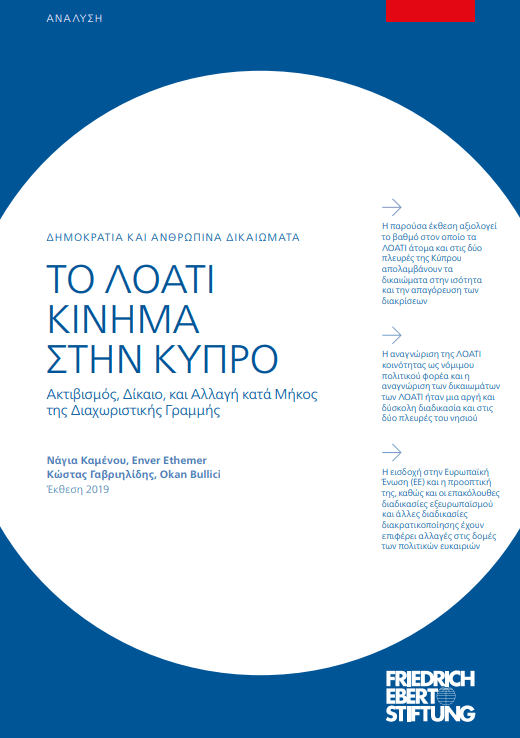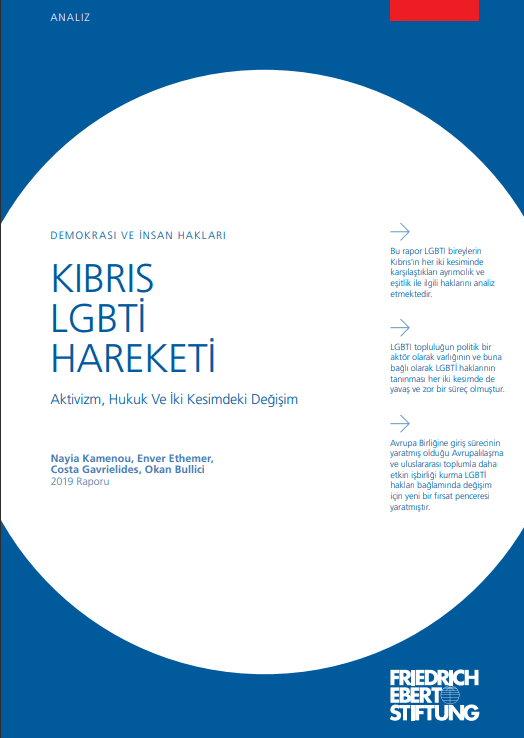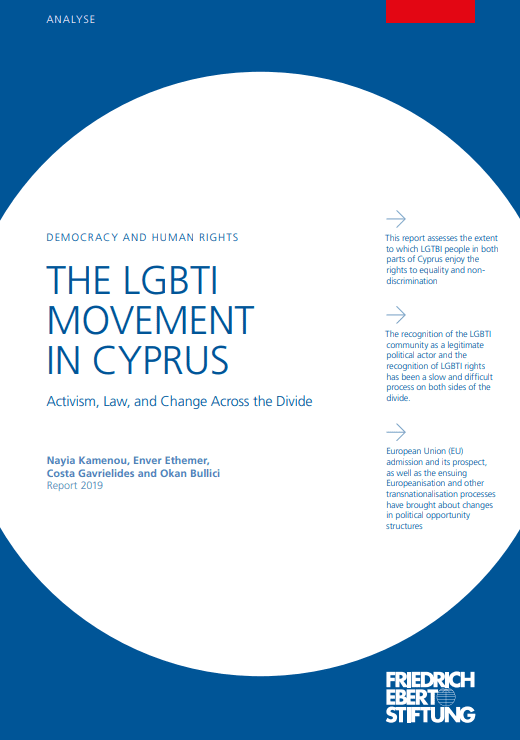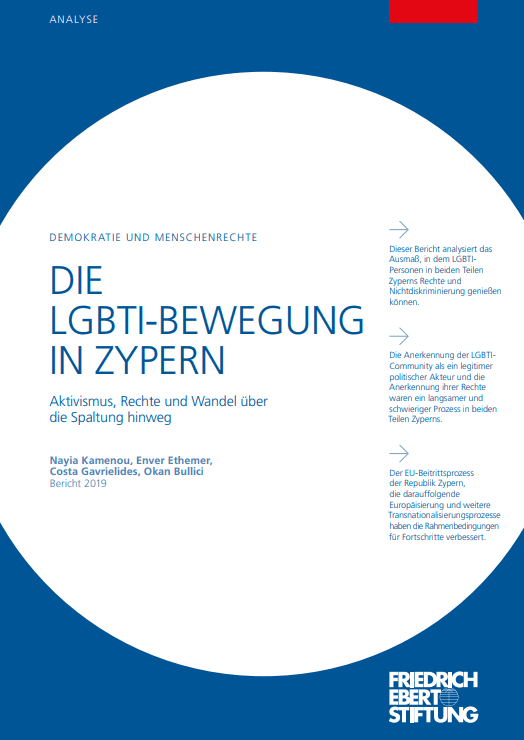The LGBTI Movement in Cyprus
Activism, Law, and Change along the Dividing Line
Report 2019 / Naya Kamenos, Costa Gavrielides, Enver Ethemer and Okan Bullici. - Nicosia : Friedrich-Ebert-Stiftung Cyprus Office, 2019. - 23 Pages = 310 KB, PDF-File. - (Analysis). - (Democracy and Human Rights)
Electronic Edition: Nicosia: FES, 2020
ISBN 978-9963-2021-6-4
In Cyprus, colonisation, ethnic division and influence of conservative socio-political actors delayed the creation and development of an LGBTI movement. The accession of the Republic of Cyprus to the European Union in 2004 has brought about changes in the structures of political opportunities that facilitated the mobilisation of LGBTI groups on both sides of the island, which remain divided at national level. Using the tools and opportunities provided by European institutions and regional LGBTI organisations, Greek Cypriot and Turkish Cypriot LGBTI activists have promoted the recognition of lgbti rights in the south and north of the island respectively, and joined their efforts for LGBTI equality across ethnic lines.
Nevertheless, in Cyprus, LGBTI equality remains a work in progress. In the north, although homosexuality has been decriminalised, after the break-up of momentum in the mid-2000s with the prospect of the reunification of the island and the entry of the north into the European Union, the progress of LGBTI rights has been sluggish, trapped in a changing political dialogue and hampered by structural rigidities. In the Republic of Cyprus, LGBTI activists have somehow been more successful in achieving positive legal changes, such as the decriminalisation of homosexuality, legislation against homophobic and transphobic hate speech, cohabitation policy and a draft bill on legal gender identity recognition.
However, on both sides of the island, decision-makers have shown a delay - if not a reluctance - to bring national legislation into line with Community and international legal standards. Moreover, efforts by state authorities to address the social and cultural marginalisation of LGBTI individuals are limited. However, not all is disastrous and vain as, since the early 2010s, a Pancyprian LGBTI movement has been in its infancy, which is gradually increasing its efforts not only to legally recognise the rights of LGBTI people but also to meaningful equality and cross-sectional justice beyond ethnicity, class, race, sexual orientation, gender identity , gender characteristics and other hierarchical structures




